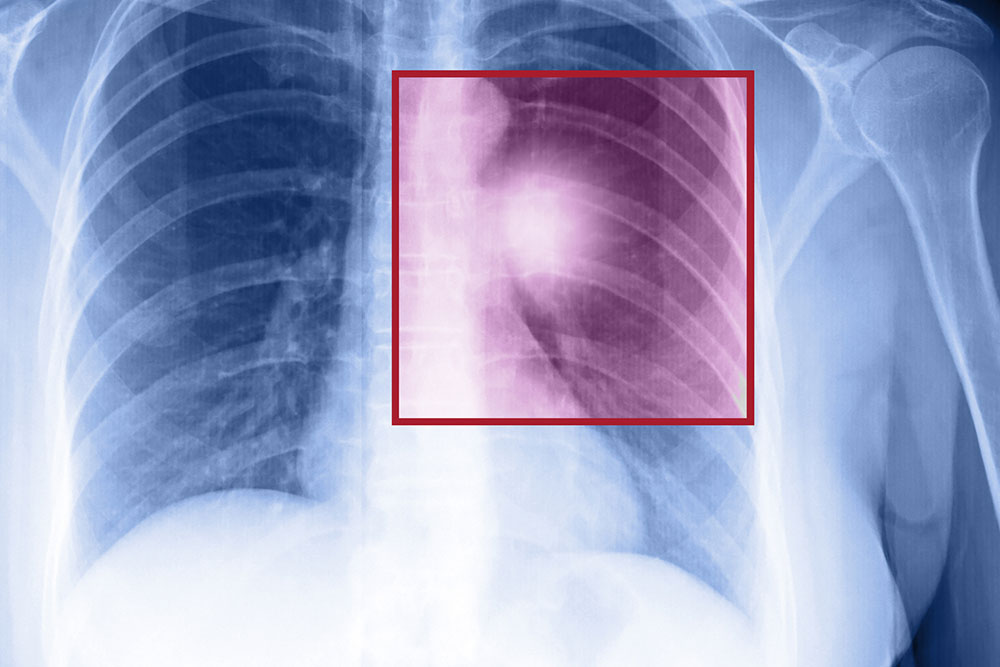Understanding Metastatic Lung Cancer and Its Effective Treatments
To get acquainted with metastatic lung cancer, you will first have to understand the term metastatic. Today, lung cancer is one of the most common cancer that both men and women in the country suffer from. In the initial stages of lung cancer, the cancer cells multiply rapidly in the lungs but they do not branch out and affect your other body parts. As time passes, cancer progresses, and it spreads out to other crucial body parts that surround your lungs.

Read further to know more about the causes, symptoms and treatment options for metastatic cancer.
Causes of metastatic lung cancer
There are two common ways in which a primary lung cancer develops into a case of metastatic cancer. The first one is by directly growing into the nearby tissue, where the tumor puts pressure on the nearby healthy tissue. At one point, the pressure reaches the optimum level and the tumor breaks through the normal tissue. Later, it blocks the supply of oxygen and blood to the same healthy tissue leading to its decay and death. This leads to the further spread of cancer.
Another way in which metastatic lung cancer spreads is through the bloodstream and the lymph vessels. Through the blood vessels, the cancer cells spread to other parts of the body. There is a chance that when these cells travel through the lymph vessels, they might get stuck and form a tumor in the lymph nodes itself.
Symptoms of metastatic lung cancer
You must want to know that identifying a case of metastatic lung cancer is not that easy because many times the symptoms are generic and not distinct enough to make you suspect that the cancer is spreading. Note that the symptoms are different depending on the part of the body where the primary lung cancer has spread.
Here are some common symptoms that you must know:
- Bones
It is believed that about 40% of the patients who are suffering from an advanced case of lung cancer develop cancer in their bones. Intense pain in affected bones and the tendency of bones to easily get fractured are some symptoms that are associated with cancer in the bones. - Liver
Pain under your ribs, nausea post eating, loss of appetite are some common symptoms that indicate a case of development of cancer in the liver. - Brain
Some common symptoms that are related to metastatic lung cancer that has spread to the brain include headaches, confusion, tiredness, and nausea. - Lymph nodes
Swelling of lymph nodes and enlarged lymph nodes are early signs that might suggest that your lung cancer has spread to your lymphatic system.
Treatment for metastatic cancer
When it comes to treating metastatic cancer, one thing to keep in mind is that irrespective of where cancer spreads, the treatment always aims at treating the primary site where cancer first started branching out from. So, in case of metastatic lung cancer, the treatment will be directed toward your lungs.
Here are some popular treatments that doctors recommend if you are suffering from metastatic lung cancer:
- Chemotherapy
This is one of the best treatment options to treat metastatic lung cancer, especially if the tumor has spread to multiple parts of the body. In chemotherapy, the patient is injected with a drug or a combination of drugs through an intravenous procedure. The drugs enter the body and destroy the cancer cells and prevent the further spread of the disease. Generally, chemotherapy doses are given at intervals so that the patient gets sufficient time to rest and recover before the next phase of the treatment. - Immunotherapy
This treatment believes in combating cancer by using your immune system’s natural fighting ability. In this type of treatment option, the doctor will give you drugs that will strengthen your immune system and make it strong enough to fight the cancer cells. The treatment also blocks the normal proteins reaching the cancer cells and ensures that these cells are deprived of nutrition to further grow. - Radiation therapy
Just like chemotherapy, radiation therapy is a popular option for people who are suffering from metastatic cancer. Radiation therapy is a great option if the cancer is spread to just one part of the body. In radiation therapy, high- energy concentrated beams are targeted to the area that is affected by cancer. The main aim of this therapy is to destroy the cancer cells and if not kill them, then at least shrink their size. Note that the radiations might also injure your normal cells and damage them for a temporary period of time. Your normal cells can recover and get back to their health on their own, so there is nothing to worry about.
Just keep in mind that the earlier you start your cancer treatment, the better the chance is to improve your health and to prevent the further progression of cancer.




